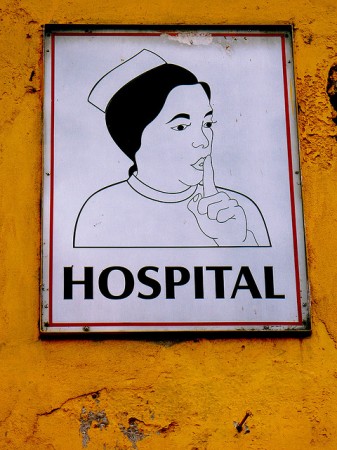
On Monday, 14 March 2011, seven Guatemalan citizens filed suit against US health officials over nonconsensual medical experiments – including the infection of some 700 Guatemalan prisoners, soldiers, mental patients and orphans with syphilis – carried out in the Central American country by American doctors between 1948 and 1964.
The Guatemalan study, which was never published, came to light in 2010 after Wellesley College Professor Susan Reverby stumbled upon archived documents outlining the experiments led by the controversial doctor John Cutler. According to the documents, American scientists persuaded prison and orphanage authorities to allow them to deliberately infect hundreds of Guatemalans with syphilis in order to test the efficacy of penicillin, in exchange for medical equipment like refrigerators, and medication to treat epilepsy and malaria.
Today’s Guatemalan lawsuit calls to mind the 1930s Tuskegee syphilis experiments in Alabama, where hundreds of African Americans were observed for over 40 years, without being told they had been infected and without being treated, even after penicillin became available. Needless to say, US government doctors at the time thought it perfectly appropriate to experiment on disabled people, minorities or prison inmates – practices all too familiar from Europe and East Asia in the 1930s. Yet at around the same time as the Nuremberg trials took place, documenting atrocities done by the Nazis in the name of medical science during World War II, the late 1940s also saw a boom in experiments on prisoners and minorities, in line with the huge growth in the US pharmaceutical and health care industries.
These practices continued well into the 1960s. By the early 1970s, however, even experiments involving criminals were considered scandalous. In the widely covered congressional hearings of 1973, pharmaceutical industry officials finally acknowledged they were using prisoners for testing – stating that they were cheaper than chimpanzees. In order to circumvent new regulations, and for financial reasons, many pharmaceutical companies thus decided to move their human experiment efforts abroad, especially to the African continent, where Tuskegee- and Guatemala-style experimentation on human subjects continued.
Further scandals followed. In the 1990s, it became known that American-funded doctors in Uganda failed to give the Aids drug AZT to HIV-infected pregnant women, even though it would have protected their newborns, for statistical reasons. And only a couple of years later, pharmaceutical giant Pfizer tested an antibiotic named Trovan on children with meningitis in Nigeria, although there were doubts about its effectiveness for that disease – leading to the deaths of 11 children and the disabling of scores of others.
Nevertheless, it must be said that multilateral pharmaceutical corporations have, as of late, come to see the light. Yet while most of the global pharma companies no longer engage in grand scale covert operations, there are still real issues to confront. Today, the bone of contention lies in the still insufficient price adaptation of the pharmaceutical industry that puts life-saving drugs out of reach of individuals, hospitals, and even nations. By referring to the forces of the free market, the pharmaceutical companies are trying to shift responsibility for their deeds to powers beyond their control. But companies which move within the realms of life and death must live up to higher moral standards.
For further information on Human Health in Central America, please click here to visit our Digital Library.


One reply on “Bad Blood”
A great piece of info for sure! Although I am not a science or Law teacher but I really like reading about such things! It feels sad to see that the multilateral pharmaceutical corporations have, as of late, come to see the light. Hope they don’t repeat the same mistake again….
==========
Steve Brown